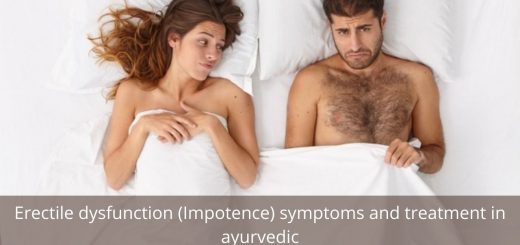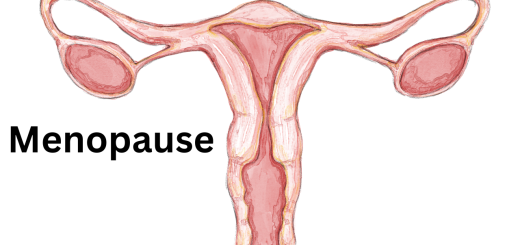Polycystic Ovary Syndrome | PCOS | Causes, Symptoms & Treatment
Polycystic Ovary Syndrome Causes, Symptoms & Treatment
Polycystic ovary syndrome (PCOS) is a serious disease associated with ovulation (ovary) of women and currently, the number of women suffering from it all over the world is increasing rapidly. Polycystic ovary syndrome (PCOS) causes the hormonal balance in the women’s body to deteriorate, making it difficult to conceive.
It is generally considered to be a lifestyle-related disease, but the main reasons behind its occurrence have not yet been ascertained. This problem is also known as Polycystic Ovary Disease (PCOS). Some women get confused about the name both PCOS and PCOD while nothing else. The syndrome is a syndrome of any health problem when several symptoms are seen simultaneously. So there is no difference between these two diseases PCOS and PCOD but only name difference. In this article, we are going to tell you in detail about the symptoms, causes, and treatment of polycystic ovary syndrome. Let’s know
These women face more problems
Experts say that the problem of PCOD is being seen more in women who work night shifts. A lifestyle like waking up late at night is causing great harm to his health. Because such routine causes the biological clock to be disturbed. Which can play a big role in increasing this problem.
What is Polycystic Ovary syndrome (PCOS)?
This is a problem related to ovaries due to which hormonal disturbances in the body of women start occurring. In such a situation, the level of male hormone (androgen) starts to increase more than the female hormones in the body. Many cysts are formed in the ovaries when there is PCOS. These bales are small pouch-shaped and filled with fluid. Gradually, these lumps start to get bigger and then they obstruct the process of ovulation. Due to lack of ovulation, women with PCOS are less likely to conceive. Women with PCOS also have an increased likelihood of developing type-2 diabetes.
Though PCOS treatment is not entirely possible, PCOS symptoms can be reduced to a great extent by making effective changes in lifestyle and diet and with the help of the right treatment. It is not necessary that women suffering from PCOS can never become mothers. Rather it depends on the severity and treatment of the disease. Women suffering from this can also become pregnant due to proper treatment and necessary lifestyle changes.
Symptoms of polycystic ovary syndrome
Most women do not know the disease until they have a pregnancy test. This problem is greatly aggravated due to not being detected at the right time. However, you can identify it by its initial symptoms. Let us know about the main symptoms of polycystic ovary syndrome.
Irregular menstruation: PCOS has the greatest effect on your menstruation and due to this the menstrual cycle gets disturbed or in many cases, there is no menstruation on time. Therefore, keep the note of your menstrual date carefully and if the menstrual period does not come on time, go to the doctor and get yourself examined.
Excessive bleeding: women suffering from PCOD disease have higher than normal bleeding during menstruation.
Unwanted hair growth: Most women with PCOS have hair growth on their face and body like men. Arriving on the chest, abdomen, and back, more hair starts appearing. This type of unwanted hair growth on the body is a symptom of Hirsutism disease.
Acne: When suffering from PCOD disease, the level of male hormones in the body of women increases, and these male hormones make the skin more oily, causing pimples on the face or chest. If pimples are coming out, again and again, it may be due to PCOS, so go to the doctor and check yourself.
Weight gain: Women also gain weight when suffering from PCOS and if not taken care of properly, they can become obese. So do not ignore the increasing weight, but go to the doctor and find out the exact cause.
Headache: Some women also experience headache problems due to hormone discontinuation.
Behavior change: Due to increased male hormone levels in women suffering from PCOS, it also affects their behavior and they become more irritable and angry than before.
Insomnia: Sleeplessness is also a symptom of polycystic ovary syndrome. In such a situation, even after getting up from sleep, you feel tired. Although these problems can also be symptoms of diseases like sleep apnea, if you are experiencing something like this then do get your examination done.
If you have many of the symptoms mentioned above, then without delay, get a doctor to do your full investigation and find out the right reasons.
Weight gain: Women also gain weight when suffering from PCOS and if not taken care of properly, they can become obese. So do not ignore the increasing weight, but go to the doctor and find out the exact cause.
Headache: Some women also experience headache problems due to hormone discontinuation.
Behavior change: Due to increased male hormone levels in women suffering from PCOS, it also affects their behavior and they become more irritable and angry than before.
Insomnia: Sleeplessness is also a symptom of polycystic ovary syndrome. In such a situation, even after getting up from sleep, you feel tired. Although these problems can also be symptoms of diseases like sleep apnea, if you are experiencing something like this then do get your examination done.
If you have many of the symptoms mentioned above, then without delay, get a doctor to do your full investigation and find out the right reasons.
Reason for PCOS:
Till now the exact cause of PCOS has not been found out and there is continuous research on this subject all over the world. Some research has shown that the problem of PCOS is also hereditary which means that if someone in your family is already suffering from PCOS, then you are more likely to get this problem. It has also been observed that if there is an irregularity in the period of diabetes in addition to diabetes, there is an increased chance of PCOS in such women as well.
PCOS Prevention Measures:
Although it is difficult to fix this problem completely, still you can protect yourself from PCOS by taking care of some things. Especially you have to make a lot of changes in your lifestyle. Let us know what to do to prevent PCOS.
Lose weight: If both your weight and body mass index are more than normal, do not ignore it as a common problem, rather try to lose weight as soon as possible. Reducing body weight by 5 to 10% helps in regularizing the menstrual cycle and also improves the symptoms of PCOS.
Read More:– Benefits of drinking water on an empty stomach
Exercise: On PCOS, body weight begins to increase rapidly and insulin levels also increase at the same time. In this case, it is very important to exercise daily in the morning and evening, otherwise, your difficulties will increase further. Regular exercise helps control weight and weight loss also help in controlling insulin. So exercise daily.
Diet changes: In some research, it has been found that eating low carbohydrates helps to reduce both weight and insulin. Therefore, in your diet, things with a low glycemic index such as fruits, green vegetables, and whole grains should be used more. These things are more helpful in regularizing the menstrual cycle.
Keep in mind that to reduce the symptoms of polycystic ovary syndrome, it is not enough to exercise only but it is very important to have a nutritious diet along with exercise. Exercising along with a good diet helps to lose weight quickly and also reduces the risk of diabetes and heart-related diseases.
Treatment of PCOS:
It is true that this disease cannot be cured completely, but its symptoms can be cured to a great extent with the help of some cures. PCOS has the highest effect on hormones, so women suffering from PCOS usually recommend taking birth control pills. Thereby correcting the worsening cycle of hormones. Apart from this, some treatments are done to get rid of unwanted hair to prevent hair from growing.















